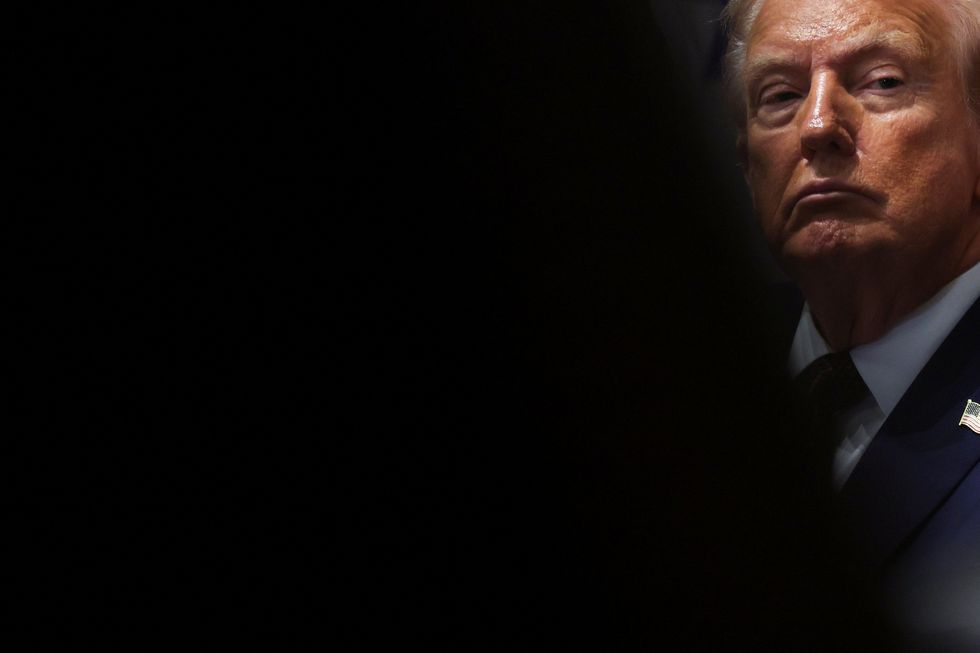World
Trump Proposes Nuclear Tests, Ignites Global Concerns

On October 29, 2023, shortly before a scheduled meeting with China’s President Xi Jinping, former President Donald Trump announced on his social media platform, Truth Social, a significant shift in U.S. nuclear policy. He stated, “because of other countries’ testing programs, I have instructed the Department of War to start testing our Nuclear Weapons on an equal basis.” This statement has raised numerous alarms, as the United States has not conducted nuclear weapon tests since 1992.
While the U.S. continues to test delivery systems for nuclear weapons, such as missiles, it has refrained from detonating nuclear warheads. The latest test of an intercontinental ballistic missile (ICBM) occurred on November 5, 2023, from Vandenberg Space Force Base in California. This recent launch has led to speculation regarding Trump’s understanding of nuclear policy distinctions, particularly in light of escalating geopolitical tensions.
Observers suggest that Trump’s announcement may be a response to Russia’s recent tests of its Burevestnik missile, which is capable of carrying nuclear warheads, although it was not equipped with one during its latest test. Critics point out that it is actually the Department of Energy that manages nuclear weapon tests, not the military. Trump’s assertion of testing “on an equal basis” with China and Russia—who are not currently conducting nuclear detonations—has evoked mixed reactions, with some viewing it as a misstep in clarity.
Concerns Over Nuclear Policy Shifts
The implications of Trump’s comments extend beyond mere rhetoric. The missile tested by Russia is designed to evade missile defense systems, utilizing nuclear power to prolong its flight. Additionally, the Russian government recently claimed to have tested its Poseidon torpedo, also nuclear-capable, which is designed to generate large waves of irradiated water in coastal regions. Such developments highlight the precarious nature of nuclear weapons policy globally.
Should the United States proceed with a nuclear test, it would contribute to a long history of environmental damage and health risks associated with nuclear detonations. A study estimates that U.S. nuclear tests have caused nearly half a million deaths due to the fallout from over 1,000 conducted tests, which represent a significant portion of the more than 2,000 tests conducted worldwide between 1945 and 2017.
The ongoing health and environmental repercussions of these tests remain unaddressed, with areas such as the Marshall Islands still affected by past detonations. Waste from tests in this region is stored in the Runit Dome, a deteriorating structure facing increasing threats from climate change. The Marshallese community continues to grapple with the consequences, highlighting the human cost of nuclear policies.
Despite the potential ramifications, the normalization of nuclear testing as a standard political maneuver appears to be escalating. It is crucial to recognize that if the U.S. resumes nuclear tests, it could prompt Russia and China to follow suit, further exacerbating global tensions and environmental degradation.
The Need for Global Responsibility
Mainstream media coverage of Trump’s announcement has often underscored the geopolitical consequences of nuclear testing, potentially overshadowing the profound moral and ethical implications. While discussions focus on the impact on U.S. relations with adversaries, the broader consequences for global security and environmental health should be at the forefront of these conversations.
The reality is that citizens worldwide, including Americans, remain vulnerable to the dangers posed by nuclear arsenals. With nuclear weapons significantly more powerful than those used in Hiroshima and Nagasaki, the stakes are alarmingly high. Advanced computer modeling has become the norm for maintaining these arsenals, yet the prospect of renewed nuclear testing raises urgent concerns about the future.
Historians have noted that one of the primary reasons for the U.S. decision to use nuclear weapons in World War II was to evaluate their effectiveness. In light of this history, any indication of willingness to conduct tests should be viewed with serious apprehension. A nuclear explosion, regardless of the circumstances, carries devastating consequences that extend far beyond national borders.
Emma Claire Foley, a Program Associate at Global Zero and manager of the Global Zero Military Incidents Project, emphasizes the critical nature of this discourse. As the world navigates an increasingly complex geopolitical landscape, the need for collective action against the threat of nuclear weapons has never been more pressing. The normalization of nuclear testing must be challenged, as the implications will reverberate across nations and generations.
-

 Science2 weeks ago
Science2 weeks agoUniversity of Hawaiʻi Joins $25.6M AI Project to Monitor Disasters
-

 Business3 weeks ago
Business3 weeks agoForeign Inflows into Japan Stocks Surge to ¥1.34 Trillion
-

 Top Stories3 weeks ago
Top Stories3 weeks agoMarc Buoniconti’s Legacy: 40 Years Later, Lives Transformed
-

 Top Stories3 weeks ago
Top Stories3 weeks agoBOYNEXTDOOR’s Jaehyun Faces Backlash Amid BTS-TWICE Controversy
-

 Health3 weeks ago
Health3 weeks agoInnovative Surgery Restores Confidence for Breast Cancer Patients
-

 Sports1 month ago
Sports1 month agoSteve Kerr Supports Jonathan Kuminga After Ejection in Preseason Game
-

 Science1 month ago
Science1 month agoChicago’s Viral ‘Rat Hole’ Likely Created by Squirrel, Study Reveals
-

 Lifestyle1 month ago
Lifestyle1 month agoKelsea Ballerini Launches ‘Burn the Baggage’ Candle with Ranger Station
-

 Entertainment1 month ago
Entertainment1 month agoZoe Saldana Advocates for James Cameron’s Avatar Documentary
-

 Top Stories3 weeks ago
Top Stories3 weeks agoCarson Wentz Out for Season After Shoulder Surgery: Urgent Update
-

 Politics1 month ago
Politics1 month agoDallin H. Oaks Assumes Leadership of Latter-day Saints Church
-

 Lifestyle1 month ago
Lifestyle1 month agoDua Lipa Celebrates Passing GCSE Spanish During World Tour









